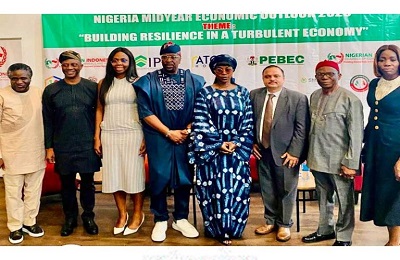Business boom doubles trade volume in five years, opening new opportunities for entrepreneurs.
Lagos, Nigeria – Nigeria Indonesia trade has shattered previous records, reaching an impressive $4.7 billion in bilateral volume that signals a new era of economic partnership. This remarkable achievement more than doubles the $1.9 billion recorded in 2019, creating exciting prospects for businesses in both nations.
A Success Story Years in the Making
The dramatic surge in Nigeria Indonesia trade didn’t happen overnight. NICCI President Ishmael Balogun revealed how strategic efforts to showcase Nigeria’s business potential transformed skeptical Indonesian investors into confident partners.
“We’ve worked tirelessly to prove Nigeria’s credibility in the global marketplace,” Balogun explained. The chamber’s persistence has paid off, with Indonesian companies now viewing Nigeria as a gateway to West African markets.
This trade explosion means real opportunities for Nigerian entrepreneurs looking to expand into Southeast Asian markets, while Indonesian businesses gain access to Africa’s largest economy.
Building Economic Strength in Tough Times
Smart business leaders know that economic storms don’t last, but prepared businesses do. At NICCI’s Nigeria Mid-Year Economic Outlook, industry experts shared strategies for thriving despite current challenges.
“Today is not about economic data, it’s about decision-making and creating a more connected network of entrepreneurs and investors ready to lead when the tide changes,” Balogun told attendees who packed the event.
The message resonated with business owners hungry for practical solutions and new partnership opportunities.
What Nigeria Needs to Keep Growing
Dr. Biodun Adedipe, Chief Consultant at B. Adedipe Associates Limited, offered a frank assessment of Nigeria’s economic priorities. The country must tackle production shortages that limit growth potential.
“We need bold reforms that push economic growth above population growth rates,” Adedipe said, pointing to critical gaps in food production, manufacturing, infrastructure, energy, and housing.
For ordinary Nigerians, this means addressing everyday challenges such as food prices and housing costs, while creating jobs in productive sectors.
Government Backs Business Innovation
The federal government recognises that private sector partnerships drive real economic progress. Chalya Shagaya, Special Assistant to the President on Entrepreneurship Development, confirmed strong support for initiatives like NICCI’s trade promotion efforts.
“We’re committed to building economic resilience through enterprise-led growth,” Shagaya said, emphasising collaboration between government and business organisations.
This partnership approach offers hope for entrepreneurs seeking government support for international expansion and local business development.
By Abiodun Labi








